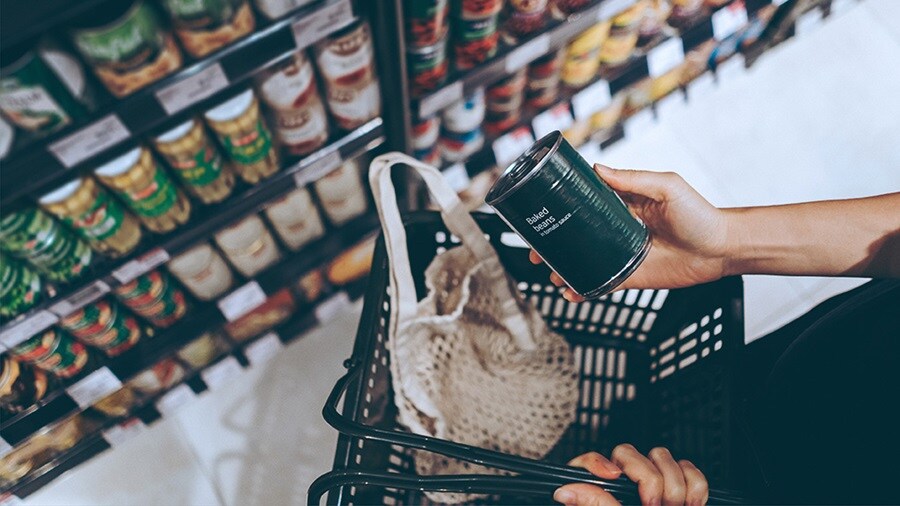
For any company engaged in international trade, customs is at the heart of its business. As companies evolve, their strategic sourcing requirements change. Events in recent years have also led many companies to review their procurement methods and associated supply chain requirements. Tariffs are a natural part of international trade. If your company is changing its sourcing strategy, incorporating customs packages can be beneficial.
By taking customs into account, you can improve your sales opportunities and become more compliant. What you import, where you import from, how much of the final product is imported, where your manufacturing unit is located, and the level of internal processing are all affected by customs considerations and can impact sourcing strategy.
The question is: how can certain customs considerations impact your strategic sourcing, and how can you make more informed decisions as a result?

Free trade agreements (FTAs)
Free trade agreements are still underutilised. An FTA facilitates trade between countries by reducing or eliminating tariffs on goods covered by the agreement. Depending on a country’s rules of origin, certain materials or products may not be covered under the FTAs, which could result in higher duties and fees. But if your company can leverage this insight within your sourcing strategy, you can save on costs.
The FTA savings may be enough to justify setting up production facilities in a particular country. The rules of origin can influence what and how you purchase: sometimes even a higher sourcing cost in terms of a price increase can lead to considerably larger savings, all dependent on what the rules of origin state.
A consideration of the entire supply chain is the basis to decide whether you and your customers can use free trade agreements. It depends on the countries from which you purchase and where the goods originate. This means that the decisions you make can have an impact, not only on your cost savings but also on your sales opportunities.

Country of origin
The country of origin determines whether your product is eligible for preferential tariff rates. For example, if it falls under the correct commodity code for free trade tariff rates. However, it is not just about the country. Another factor is if the product you want to import is composite or not, and if so, where does it come from? What percentage of your goods is composite and what is your level of processing? This will help determine whether your customers can take advantage of available FTAs. Finally, your sourcing options may be affected by the fact that the country of origin is also used to decide whether trade policy measures can restrict trade in the goods in question. Examples of such measures include embargoes, anti-dumping measures and quantitative restrictions.
The compliance risks associated with the use of the wrong country of origin can be severe. If the product you want to import contains parts from different countries, you need to be especially careful. Authorities place a lot of importance on the country of origin because importation is about revenue and permissibility. If you are unsure about the country of origin, you can reduce the risks by asking the customs authorities for a binding decision in advance. In the EU, this is called an ’Advance Ruling of Origin‘ or a ‘Binding Origin Information’ (BOI) decision.
Classification of goods – First-class classification of goods

The classification of your goods also helps determine whether you can take advantage of free trade agreements and the duties you pay. For example, a composite product may be subject to import duties, while a product that is imported in parts and self-assembled is not. This does not mean that it is always better to import components, but it does illustrate that sourcing and production-related decisions can affect the duties incurred. Consequently, you should examine how such decisions affect tariff costs and what is required to classify a product to qualify for a free trade agreement. The classification can affect your purchasing decisions.
Classifying goods is not just about tariffs and the potential use of free trade agreements. It also requires additional actions that affect your sourcing strategy.
For example, commodity codes determine whether import or export restrictions apply and whether import or export licenses are required.In addition, classification determines whether the product is subject to excise tax and, in some cases, whether you can take advantage of reduced VAT rates.
Although there is a clear framework, the classification of a product can be a matter of discretion to a certain extent. As with the country of origin, you can apply in advance for a binding classification decision from the relevant customs authorities (BTI: binding tariff information). If this is granted, you have the certainty that the commodity code you want to use for your product is the correct one.
Customs valuation
For each product, customs authorities have a predefined value range: what should the product cost? If you enter a lower customs value than the lower threshold of this range, it will probably cause a reaction from the customs authorities. Consequently, you will be asked to justify the value you have entered. This may result in unforeseen higher duties and higher VAT costs. Failure to comply may result in fines and penalties. To prove a specific customs value, you must be able to show what happened in each link of the chain of monetary events for the product. This includes all transactions, what the product includes, the origin, and processing and manufacturing cost of the product.
To customs authorities, transparency is crucial. You and your suppliers need to provide them access to the information they need to avoid facing the risk of increasing costs. If you know from the beginning that your sourcing, manufacturing and sales activities lead to a low customs value, you should have a method and structure to prepare all monetary transactions associated with the product. You can submit this information with the import declaration or have it on hand in case customs or tax authorities ask for it.
Incorporating customs considerations into your purchasing strategy can have significant benefits. If you have questions and would you like to discuss how you can expand your customs management and better understand the impact of customs on your business, please contact our Maersk Customs experts here.
无论您需要什么,我们都可以随时为您提供帮助
I agree to receive logistics related news and marketing updates by email, phone, messaging services (e.g. WhatsApp) and other digital platforms, including but not limited to social media (e.g., LinkedIn) from A. P. Moller-Maersk and its affiliated companies (see latest company overview). I understand that I can opt out of such Maersk communications at any time by clicking the unsubscribe link. To see how we use your personal data, please read our Privacy Notification.
By completing this form, you confirm that you agree to the use of your personal data by Maersk as described in our Privacy Notification.
